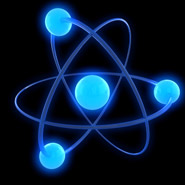Mar 25 2010
Budding physicists from across the South West will be competing to build a machine capable of identifying invisible particles today [25 March], when they attend a physics masterclass hosted by scientists from the University's Department of Physics.

Around 180 sixth-form students will attend the Particle Physics Masterclass, designed to provide them with valuable practical experience from University physicists who are involved in the world's largest scientific experiment, the Large Hadron Collider [LHC] at CERN in Geneva.
The day will consist of a mixture of talks and practical sessions, including a competition entitled 'The Detector Game' in which the students will use their analytical skills to design a proposal to build a particle detector to look for new particles.
As well as examining the collisions of elementary particles travelling at close to the speed of light, racing through the LHC - a 27-kilometre-circumference accelerator, the students will also be discussing their results via video conference with academics at CERN in Geneva.
Greg Heath, Professor of Physics at the University, said: "The Particle Physics Masterclasses have proven extremely successful and highlights some of the latest developments in particle physics research. The events enables the students to experience the excitement of this fundamental science first hand and an opportunity to relate their work to current research."